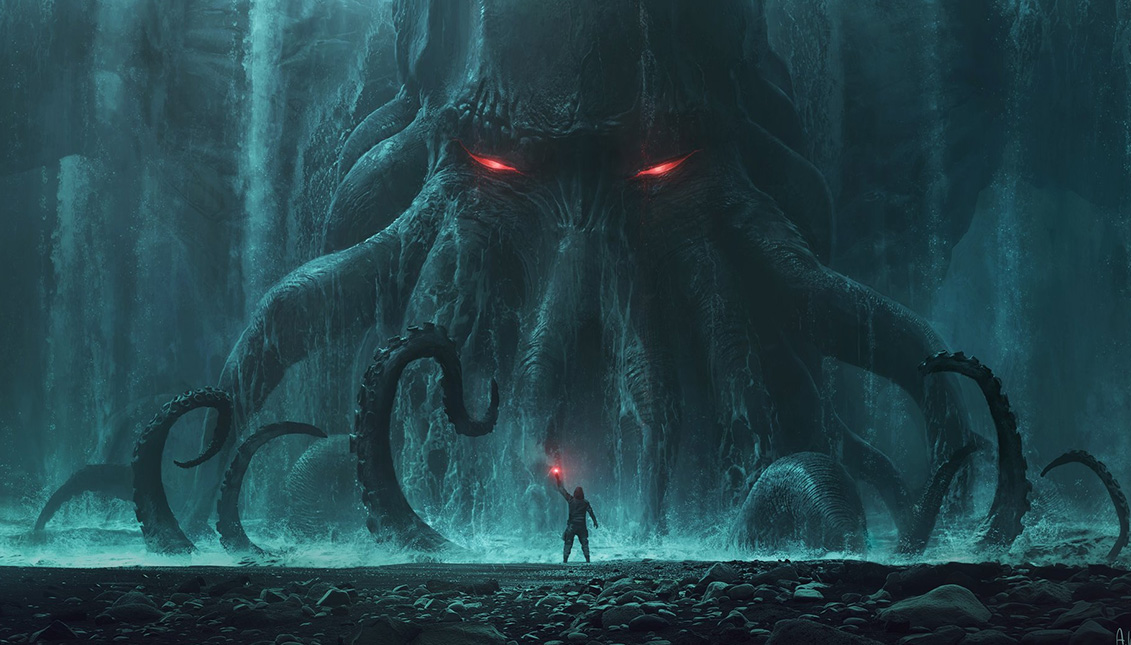
Post-colonial chills: We need more Latino horror to decolonize our fears
Authors like Silvia Moreno-García and Mariana Enríquez are reinventing horror from a political position that removes it from commonplace.
I like to be afraid, especially when I can control it by closing the pages of a book or turning off the TV. Of all the genres that address the reality of the person, horror is one of the most intimate. It confronts us with something very atavistic, which is far below our consciousness and, like fungus, expands and communicates without being defined.
That which frightens us takes the form of ideas based on primitive learning and are based on a narrative of the "Other," as a shadowy and disfigured enemy we need to put a face to in order to confront. The figure exists without understanding that the greatest villain resides, as the psychoanalyst Gustav Jung postulated, within us — the shadow that either you accept and embrace, or it ends with you. Sometimes, it is also collective.
In the classic horror narrative we find authors like Edgar Allan Poe, whose stories like The Black Cat or The Fall of the House of Usher, occur in domestic settings charged with symbolism and there is a fine line between the supernatural surrounding the characters and the darkness itself. In a way, we are landscape. We contaminate it and allow ourselves to be contaminated by it. On the other side is H.P Lovecraft, who created the cosmic horror by placing his monsters at the ends of the Earth or in outer space, while creating parallel worlds.
Although Lovecraft was a withdrawn person with a deep hatred of migrants, he shares with most classical authors, from Bram Stoker to Walpole, a perspective of horror that addresses what escapes his own culture and territory as something to be feared.
Eurocentrism and its clichés have dominated the universe of the strange and the fearful to the point that even authors who work on the genre today are tempted to fall into the nets of these commonplaces.
However, a new generation of authors are stripping it of the old, patriarchal, and supremacist.
Among them, Silvia Moreno-García, author of Mexican Gothic, a novel that caught a lot of attention over the summer for its unusual twist on classic horror, addressing eugenics in Mexico through the story of a young Mexican woman, Noemi, who comes to help her cousin that lives in a castle and is married to the fearsome Virgil Doyle. Noemi is the victim of strange visions and nightmares and finds out that the Doyle family uses the spores of a fungus to prolong their life and maintain a certain genetic purity.
RELATED CONTENT
Mexican Gothic is a well-spun story — although not a chilling one — where Moreno-García shows great mastery when it comes to reversing the clichés of authors like Daphne du Maurier or Mary Shelley, taking advantage of the elementary cultural fears to give a political and postcolonial touch to the narration. At times, and given that it is a matter of deconstructing those commonplaces, fans of Mexican folklore would have appreciated more immersion in time — the 50s of the past century and the Latin American myths that repopulate that imaginary.
There's also Mariana Enríquez, an Argentine author who has become by her own merits the great lady of the Latin American horror. She leads us by the hand in Our part of the Night through secret societies, mediums, and forces of the Beyond in a history that branches out from Buenos Aires under a dictator to the London of the 60s, and delves into the weight of the inheritances that pursue us like ghosts and end up condemning us.
The same can be said of Puerto Rican Ann Davila Cardinal, as she places us in Category Five on the post-Maria Puerto Rico, where corpses have been found with their hearts torn out and other strange phenomena that surround the construction of a hotel complex. The story addresses through Lupe, its protagonist, the complex double identity of U.S. Latinos, and the relations between Puerto Ricans and the U.S.
The three authors appeal to fear, not in the manner of Lovecraft as an indeterminate being, nor in the manner of China Miéville as a monster that lives in the city with us, but rather they redefine this horror and confront it with the prejudices and suffering that we carry. From gender, from race and legacy, they universalize it and creating empathy. We are, as Saramago said, islands that are connected and our fears are as diverse in essence as we are.
To rewrite fear is to put ourselves back at the center.











LEAVE A COMMENT:
Join the discussion! Leave a comment.